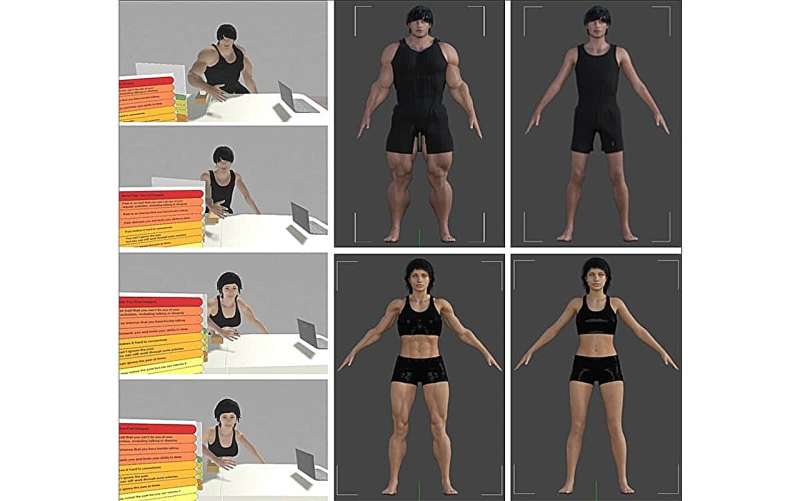This article has been reviewed according to Science X's editorial process and policies. Editors have highlighted the following attributes while ensuring the content's credibility:
fact-checked
peer-reviewed publication
trusted source
proofread
Using muscular avatars in VR to reduce pain perception

Researchers at University of Tsukuba have reported that immersion in virtual reality using an avatar with a muscular build can reduce pain perception. They also noted that the combination of the gender of the user and avatar impacts this reduction effect. In addition, their study investigated gender stereotypes related to pain and degree of avatar immersion.
The phenomenon known as the Proteus effect, wherein the appearance of an avatar influences a person's behavior and perception in a virtual reality (VR) environment, is well-known. Previous studies have reported that user behavior toward the opposite sex and weight perceptions can be altered. The new study aimed to determine how the Proteus effect influences pain perception.
The findings are published in the journal Scientific Reports.
For the experiments, the researchers developed avatars with muscular and average-body types for each sex, resulting in four distinct avatars. A total of 44 undergraduate and graduate students participated in this study. They wore head-mounted displays and engaged in a specific task within a VR setting, using one of the assigned avatars. To simulate pain, thermal stimuli were applied to the participants' arms in the real world and their pain perception was assessed.
The findings revealed that the participants reported approximately 16% lower pain scores on the Pain Assessment Scale when using the muscular avatar than when using the average-body avatar. Furthermore, when the participants' and avatars' genders were matched, the reported pain scores were considerably lower than when they did not match. This indicates that gender differences play a role in the Proteus effect. This research provides valuable insights into how VR technology can be employed to manage pain without the need for anesthesia or pharmaceuticals.
More information: Youchan Yim et al, The proteus effect on human pain perception through avatar muscularity and gender factors, Scientific Reports (2024). DOI: 10.1038/s41598-024-61409-4




















